Meet the Thought Leaders
Coordinator
Dr. Alexandria Harvey is the Diversity, Equity, and Inclusion Coordinator for NCSI. She leads the Race X Disability Thought Leaders Conversation Series for NCSI, facilitating conversations centered around the intersection of race and disability with national leaders in this space.
-
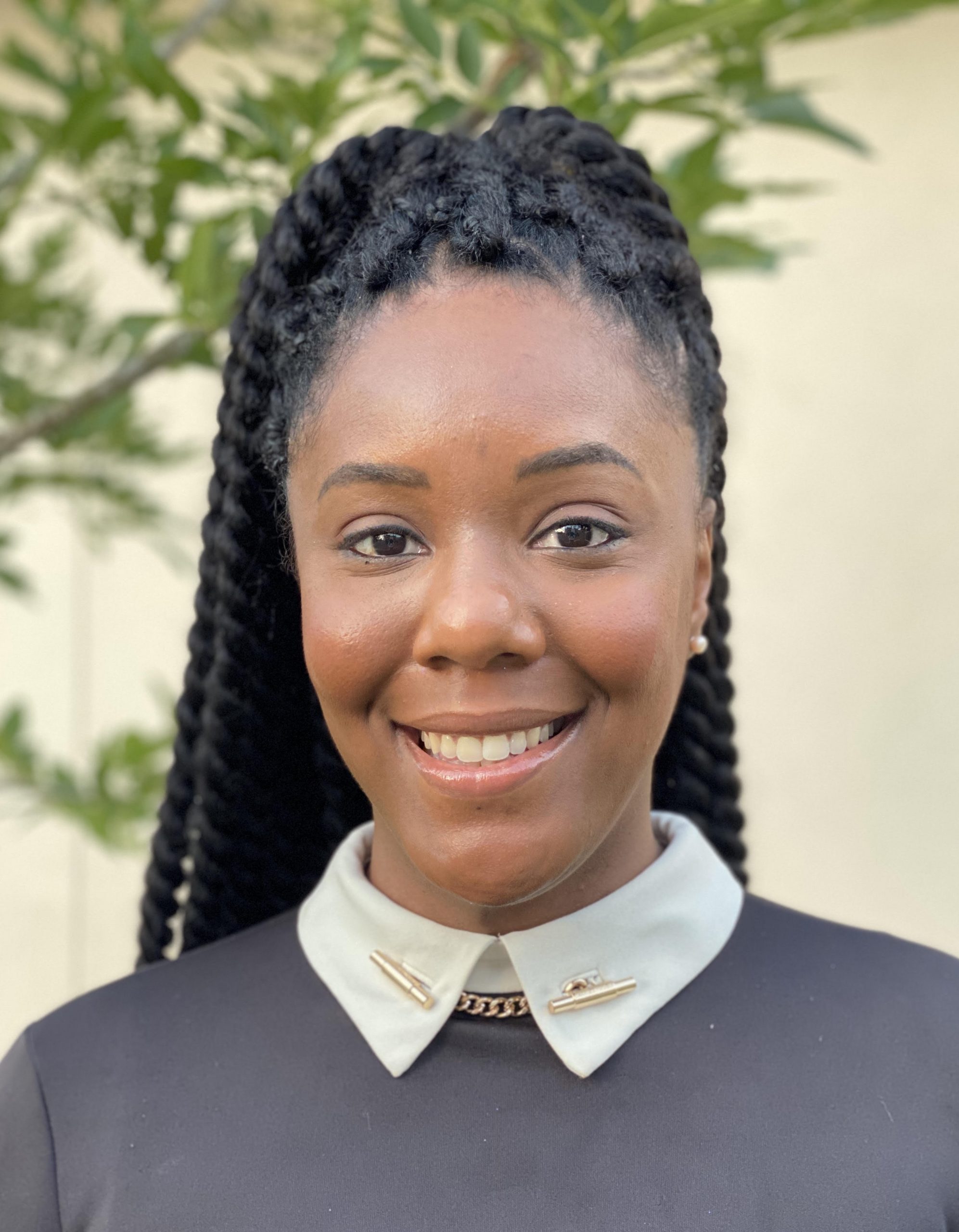
Dr. Alexandria Harvey joined WestEd in 2020, to work with the National Center for Systemic Improvement (NCSI) focused on equity, race, and disability work. She leads the Race X Disability Thought Leaders Conversation Series for NCSI facilitating conversations centered around the intersection of race and disability with national leaders
in this space.
Dr. Harvey recently completed her Ph.D. in Special Education from the University of Florida where she focused on culturally relevant education. Her dissertation was on the self-efficacy of preservice teachers and their ability to enact culturally responsive classroom management practices. She began her career in education as a varying exceptionalities teacher in Alachua County Public Schools in Florida. Following her experience in the classroom, she transitioned to starting her Ph.D. program. During her time at the University of Florida, Alexandria was a graduate assistant for the CEEDAR Center, providing technical assistance for the states of Tennessee, New York, and Florida. She also facilitated a Topical Action Group for Culturally Relevant Education, which aligns closely with her research agenda of culturally relevant education, with a tight focus on culturally responsive classroom management.
Thought Leaders
-
-
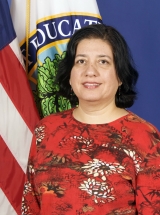
Dr. Supreet Anand has been working in the field of education for more than twenty-five years. She currently serves as the deputy director for the Office of English Language Acquisition (OELA).
As the deputy director for OELA she informs policy on English Learners (ELs) and supervises OELA’s role in disseminating information about educational research, practices, and policies for ELs through the National Clearinghouse for English Language Acquisition. She also supervises the discretionary grant programs under Title III. Previously, Dr. Anand worked as a supervisory group leader leading a state support group in the Office of State Support (OSS) at the U.S. Department of Education’s (ED). Ms. Anand holds a Ph.D. in applied linguistics and language education from University of Maryland, College Park; an MS in applied linguistics from Georgetown University, Washington D.C. and an MA in English literature from Punjab University, India.
-
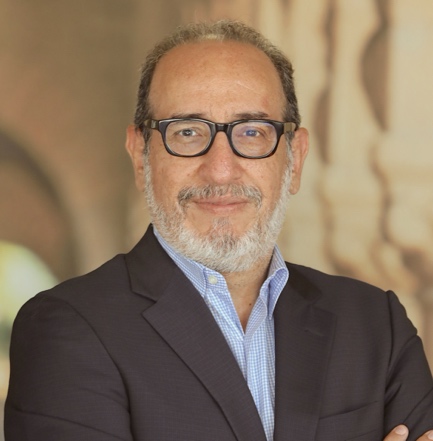 Dr. Alfredo J. Artiles
Dr. Alfredo J. Artiles
Dr. Alfredo J. Artiles is the Lee L. Jacks Professor of Education at Stanford University. He is the Director of the Stanford Center for Opportunity Policy in Education (SCOPE) and Director of the Research Institute at the Stanford Center for Comparative Studies in Race & Ethnicity.
Dr. Artiles is affiliated faculty in the Learning Differences & the Future of Special Education Initiative and the King Center on Global Development at Stanford University. He is an elected member of the National Academy of Education, a Senior Fellow at the Learning Policy Institute and Fellow of the American Educational Research Association (AERA) and the National Education Policy Center. He was a resident fellow at Stanford’s Center for Advanced Study in the Behavioral Sciences. From 2011 to 2017, he served on the White House Advisory Commission on Educational Excellence for Hispanics and has been appointed to three panels of the National Academies of Sciences, Engineering and Medicine.
Prof. Artiles’ interdisciplinary scholarship examines paradoxes produced by policies that address equity issues. For instance, he studies and has published extensively on the dual nature of disability as an object of protection and a tool of stratification. He aims to understand how responses to disability intersections with race, language,gender, and social class advance or hinder educational opportunities for disparate groups of children and youth. He and his colleagues have led national and regional technical assistance initiatives at the state and school district levels to address these equity paradoxes. Dr. Artiles received mentoring awards from The Spencer Foundation, AERA, and Arizona State University.-
 Dr. Lauren Artzi
Dr. Lauren Artzi
Lauren Artzi, Ph.D., is an education senior researcher at the American Institutes for Research, working in the areas of second language education, literacy instruction, special education, and multi-tiered systems of support (MTSS).
Currently, Dr. Artzi provides technical assistance through various national technical assistance centers. She is also a principal investigator of a systematic replication study examining a literacy instruction in the context of content-area learning. With the National Center for Systemic Improvement (NCSI), Dr. Artzi co-leads the Evidence-based Practices priority area. She holds a doctorate in curriculum and instruction from the second language education and culture (SLEC) department at the University of Maryland and an MA in TESOL from Tel Aviv University. Prior to her position at AIR, Artzi was a research associate at the Center for Applied Linguistics, a former secondary English to Speakers of Other Languages (ESOL) teacher in the United States, and primary and secondary English teacher in Israel.-
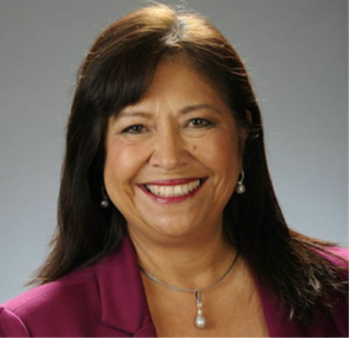 Dr. Julie Esparza Brown
Dr. Julie Esparza Brown
Dr. Julie Esparza Brown is a Professor in the Department of Special Education at Portland State University (PSU) where she teaches courses in assessment, special education law and working with diverse exceptional learners and their families.
Prior to joining the faculty at PSU, she worked in the K-12 system as a bilingual teacher, special educator, and school psychologist. She is a nationally recognized expert in culturally and linguistically responsive educational systems, assessment of multilingual learners, and bilingual special education. She has written and been awarded numerous federal grants to prepare diverse general and special educators. Additionally, she just completed a four-year Model Demonstration grant to improve literacy outcomes for English Learners with disabilities funded by the U.S. Department of Special Education Programs. Dr. Brown served on the National Advisory Board for the NCRTI and is on the editorial board of two journals. Her publications focus on identifying ELs with language differences from disabilities, culturally and linguistically appropriate assessment and instruction across MTSS tiers, culturally and linguistically appropriate IEPs and preparing a diverse teacher workforce. Her co-authored book (Haas & Brown), Supporting English Learners in the Classroom: Best Practices for Distinguishing Language Acquisition from Learning Disabilities is available through Teachers College Press (Haas & Brown, 2019). To broaden the impact of her work, she recently completed her four year term on the school board of the largest public school system in Oregon.-
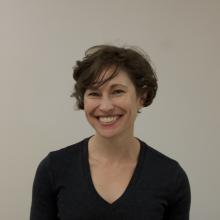 Dr. Jamey Burho
Dr. Jamey Burho
Jamey Burho is a Senior Research Associate at WestEd. Dr. Burho works between the EL Services and Migrant Education (ELMES) and Special Education Policy & Practice (SEPP) teams to conduct research and build collaboration between the teams.Her areas of expertise include co-teaching and the school experiences of English learners with disabilities. Burho received a BS in International Relations from Georgetown University, an MAT in Special Education from Trinity Washington University, and a PhD in Special Education from the University of Maryland, College Park-
 Dr. María Cioè-Peña
Dr. María Cioè-Peña
María Cioè-Peña earned her PhD in Urban Education from The Graduate Center – City University of New York, where she was also an Advance Research Collaborative fellow and a Presidential MAGNET Fellow.
She is a bilingual/biliterate education researcher and educator who examines the intersections of disability, language, school-parent partnerships and education policy. Taking a sociolinguistic approach and stance, she pushes and reimagines the boundaries of inclusive spaces for minoritized children. Stemming from her experiences as a former bilingual special education teacher, María’s research focuses on bilingual children with dis/abilities, their families and their ability to access multilingual and inclusive learning spaces within public schools. Her interests are deeply rooted in political economy, raciolinguistic perspectives and critical dis/ability awareness within schools and families. María’s two-time award winning dissertation focused on the experiences of Spanish-speaking mothers raising emergent bilinguals labeled as disabled. Maria has published in Urban Review; Theory, Research, and Action in Urban Education; Bilingual Research Journal; International Journal of Inclusive Education; Teachers College Record; and Multiple Voices, and contributed to multiple edited volumes. María is currently an Assistant Professor and a Community-Engaged Teaching Fellow at Montclair State University. Her book,(M)othering Labeled Children was published by Multilingual Matters in 2021.-
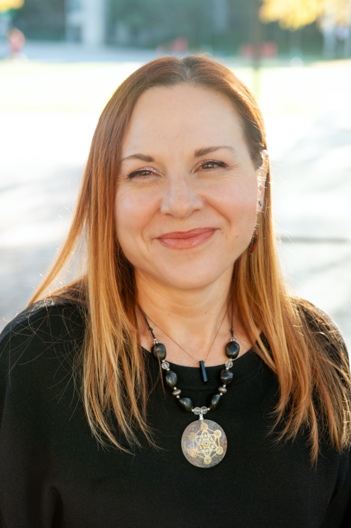 Dr. Cristina Santamaría Graff
Dr. Cristina Santamaría Graff
Dr. Cristina Santamaría Graff is an Associate Professor of Special Education, Urban Teacher Education and is serving as Interim Assistant Dean of Student Support and Diversity in the School of Education at IUPUI.
She has expertise in bilingual/multicultural special education and applies her skills in working with Latinx immigrant families of children with dis/abilities in family-centered projects. Her scholarship focuses on ways community-engaged partnerships with families and other stakeholders can transform inequitable practices impacting youth with disabilities at the intersections of race, class, and other identity markers of difference. Specifically, her work focuses on an approach known as “Family as Faculty” (FAF), a strategy in special education programs that positions community stakeholders’ knowledge and knowledge-making as central to the process of transforming systems.
Currently, Cristina is one of the editors for the journal Multiple Voices: Disability, Race and Language Intersections in Special Education. She is a recipient of several community engaged awards affiliated with her implementation of FAF approaches in her teaching and research including the Ernest A. Lynton Scholarship of Engagement Award (2019), American Educational Research Association (AERA) award for Exemplary Contributions to Practice-Engaged Research (2019), the Brian Douglas Hiltunen Award for Community-Engaged Research (2019), the Down Syndrome Indiana Star Award (2020) and the Charles R. Bantz Chancellor’s Community Scholar Award (2018). She is a co-PI of the Digital Education Hub where she provides sustainable and rigorous support for K-12 students through resources co-developed with community stakeholders, families, and educators. In addition, she is a Diversity, Equity, and Inclusion (DEI) consultant for Yale University’s Center for Emotional Intelligence on a research project titled, “Yale Equity and Well-Being’ centered on ways to ‘best support and empower BIPOC and all Yale students experiencing high stress and mental health challenges.”-
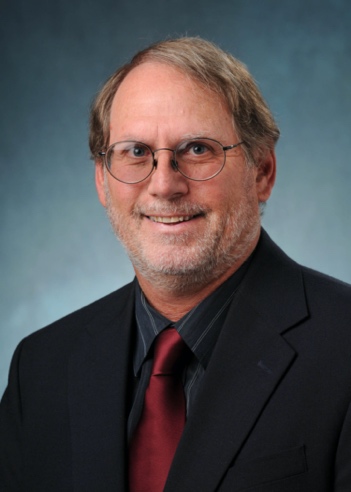 Dr. John J. Hoover
Dr. John J. Hoover
John J. Hoover, PhD, is Associate Research Professor in the School of Education at the University of Colorado Boulder where he directs graduate level programming preparing educators to obtain state K-12 teaching endorsements in the combined areas of culturally and linguistically
diverse education and special education. His research and K-12 professional development are situated at the intersection of diversity and exceptionality with specific emphasis on culturally and linguistically sustaining multi-tiered systems of support (MTSS), referral, assessment, and IEPs. Formerly, he was Director of Research and Evaluation for the American Indian Science and Engineering Society (AISES), and a K-12 classroom teacher and supervisor working with diverse student populations and their families in several midwestern, western, and southwestern states. He has over 100 publications that include journal articles, books, textbook chapters, assessments, infographics, and practitioner briefs. For over 30 years, John has served as a principal investigator/project director managing over $20 million in federal, state, foundation, and university funded grants. He also currently serves as an external evaluator for two Office of English Language Acquisition (OELA) National Professional Development (NPD) funded projects and is a recent faculty advisor for a 2020 Hammill Institute on Disabilities Doctoral Fellowship recipient. His recent awards include the 2020 CEC Division for Learning Disabilities Samuel A. Kirk Award for best practitioner article describing culturally and linguistically sustaining IEPs, 2016 American Council on Rural Special Education (ACRES) Research Article of the Year for his publication on special education referrals of ELs, and 2018 induction into the Illinois State University College of Education Alumni Hall of Fame honoring his work in multicultural special education. John received a bachelor’s degree in elementary and special education from Illinois State University, a master’s degree in special education learning disabilities and emotional disorders from Northern Arizona University, and Ph.D. in curriculum/special education from the University of Colorado Boulder.-
 Debra A. Jennings
Debra A. Jennings
Debra A. Jennings is an NCSI Content Specialist and the former director, National Center for Parent Information & Resources. After more than 20 years as a leader of the SPAN Parent Advocacy Network, Debra retired to increase her personal and professional focus on elevating the importance of equity and anti-racism
is an NCSI Content Specialist and the former director, National Center for Parent Information & Resources. After more than 20 years as a leader of the SPAN Parent Advocacy Network, Debra retired to increase her personal and professional focus on elevating the importance of equity and anti-racism at the intersection of authentic engagement of historically marginalized peoples as a key strategy for more liberative and empowering systems for children and families. Jennings supports, community groups, parent/family organizations, as well as state and local education systems who are willing to take on the issues within their contexts and do the work. She has created and co-created tools and processes that have been used by parent orgs, professionals and agency leaders and is a sought after presenter and advisor. She has served thought leader and advisor for numerous national initiatives including many funded by the US Department of Education.-
 Jennifer Kane
Jennifer Kane
Jennifer Kane has empowered youth with disabilities, their families, and the educators who serve them in her role as Education Programs Professional for Secondary Transition at the Nevada Department of Education Office of Inclusive Education since 2007.
She earned a Bachelor of Science Degree in Elementary and Special Education and the Distinguished Intern Award in 1996-1997 from the University of Nevada, Reno (UNR). From 1997 – 2001, Jennifer began her career as a special educator at Edward C. Reed High School in northern Nevada while furthering her education to earn a Master of Education Degree in Elementary Education with a focus on Literacy Studies from UNR in 2000. Following a brief European hiatus, Jennifer moved to southern California in 2002 where she worked as a Resource Specialist and Special Education Department Chair until she received an Award for Teaching Excellence and was named the 2006 – 2007 Teacher of the Year at Saugus High School.-
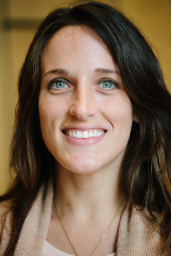 Dr. Sara Kangas
Dr. Sara Kangas
Sara Kangas is an Assistant Professor in the College of Education at Lehigh University. As an applied linguist, Dr. Kangas’s program of research focused on issues of access and equity in K–12 schools for English learners (ELs) with disabilities.
In her research, she investigates how education policies and school conditions shape the academic and bilingual development of ELs with disabilities. Dr. Kangas’s research on ELs with disabilities has been published in numerous top-tier journals and has been awarded the prestigious James E. Alatis Prize for Research on Language Planning and Policy in Educational Contexts and the TESOL Award for Distinguished Research. Her current research funded by the Spencer Foundation examines the prevalence of ELs with disabilities among long-term ELs. In her work, Dr. Kangas also partners with state leaders to develop and refine policies that safeguard the rights of ELs with disabilities-
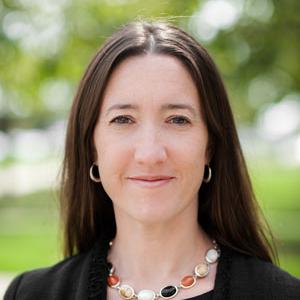 Dr. Kathleen King Thorius
Dr. Kathleen King Thorius
Dr. Kathleen King Thorius is Associate Professor of Special Education and Urban Education Studies and Executive Director of the Great Lakes Equity Center and its Midwest and Plains Equity Assistance Center. Dr. Thorius is an internationally recognized expert in culturally responsive and sustaining education,
Dr. Kathleen King Thorius is Associate Professor of Special Education and Urban Education Studies and Executive Director of the Great Lakes Equity Center and its Midwest and Plains Equity Assistance Center. Dr. Thorius is an internationally recognized expert in culturally responsive and sustaining education, special and inclusive education, equity considerations in multi-tiered systems of support, and race and disability equity-oriented professional development. Published extensively in practitioner and research outlets, including Harvard Educational Review, and the International Journal of Inclusive Education, Dr. Thorius was a school psychologist before earning her Ph.D. as a USDOE-funded doctoral fellow in an interdisciplinary program to prepare culturally responsive special education professors. During this time, she was a professional learning coordinator for the National Center for Culturally Responsive Education Systems and the National Center for Urban School Improvement—and co-directed the Equity Alliance at Arizona State University. Dr. Thorius presents nationally and internationally on race, language, and dis/ability equity, and multi-tiered systems of support including culturally responsive school-wide discipline approaches. Her expertise undergirds past and current work with myriad US urban, rural, and suburban school districts and state departments of education.-
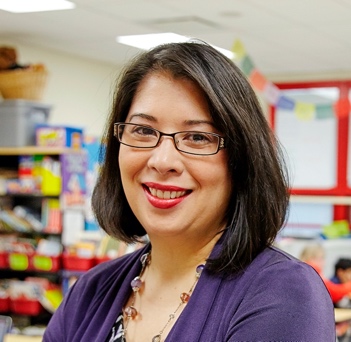 Mireika “Marie” Kobayashi
Mireika “Marie” Kobayashi
Mireika “Marie” Kobayashi, M.Ed is currently a Department of Student Services Manager in Cincinnati Public Schools (CPS) helping to oversee English for Speakers of Other Languages supports and services. Before becoming Manager, Mireika collaborated with district leaders to establish and
serve in the role of the Cincinnati Public Schools’ Culturally-Responsive/Bilingual School Psychologist as a means of promoting district-wide, culturally responsive, multi-tiered systems of support. During the past 17 years, Mireika has worked in consultation with regional administrators, teachers, families, Ohio Department of Education representatives, and community leaders, including those representing the Ohio Commission of Hispanic/Latino Affairs, the League of United Latino American Citizens (LULAC), and the Immigrants with Dignity Coalition of Cincinnati. She has taught and developed courses in the areas of diversity, collaboration, consultation, communication skills, assessment and diagnosis for children with diverse learning needs at the University of Cincinnati, Miami University, and University of Dayton. Mireika is a representative of the Ohio Department of Education English Learner Advisory Council (ELAC) and serves as a board member on locally established organizations such as the English Language Learning Foundation in order to ensure that supports are in place to enhance the acquisition of languages, particularly academic English, for diverse learners in the region and across the state of Ohio. As a result of her community work around the state, Mireika Kobayashi was the winner of the 2017 Ohio Commission of Hispanic/Latino Affairs’ Education Advocate Award.-
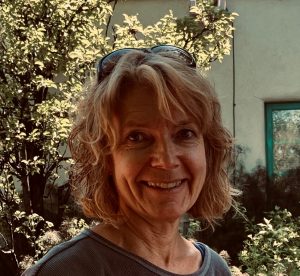 Kirsi Laine
Kirsi Laine
Kirsi Laine serves as the Deputy Director in the Language and Culture Division (LCD) at the New Mexico Public Education Department and works with the LCD team to ensure New Mexico’s students have access to rigorous and student-centered language programs
that increase achievement and outcomes for all multilingual students. Kirsi grew up in northern Europe learning English as her fourth language, and earned her Master’s degree in business administration from the Helsinki School of Economics and Business Administration. She worked as a special education case manager, teacher, and assistant in New Mexico for over 10 years and holds a teaching license in both elementary and special education with TESOL, ELA, and Math endorsements. Prior to working in New Mexico, Kirsi worked with culturally and linguistically diverse populations including serving as a coordinator of special procedures of unaccompanied minors and victims of violence at the Sungei Besi refugee camp in Malaysia.
Kim Miller is currently a Multilingual Lingual (English Learner) Specialist for the Oregon Department of Education. Kim is a former elementary school EL teacher, foreign language student coordinator, charter school administrator, state ELP assessment coordinator.-
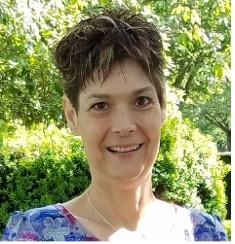 Kim Miller
Kim Miller
Kim Miller is currently a Multilingual Lingual (English Learner) Specialist for the Oregon Department of Education. Kim is a former elementary school EL teacher, foreign language student coordinator, charter school administrator, state ELP assessment coordinator,
and national president of the National Association of State Title III Directors (2017-18) (current name – National Association of English Learner Program Administrators). Kim’s passion is supporting all multilingual learners especially students experiencing disabilities or refugees. Currently Kim is working in Oregon on standards and assessments for Els with the most significant cognitive disabilities. Kim is a veteran of the United States Army, after serving she earned her Bachelor of Arts in German with a Teaching English as a Second Language Certificate and a Masters of Education from Portland State University. In her spare time, Kim is a 4th degree black belt in Taekwondo and she trains in Tai chi.-
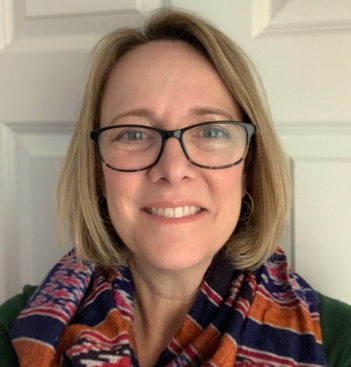 Cerelle Morrow
Cerelle Morrow
Cerelle Morrow currently serves as a Senior Program Associate with WestEd designing and implementing professional learning with schools and districts in the area of English learners, adolescent literacy, and best practices related to standards-based instruction and inclusive practices.
As a member of two federally funded comprehensive centers and the REL-NEI, she also provides technical assistance and support to SEAs and LEAs supporting effective teaching and learning for district and school improvement. Prior to joining WestEd, Cerelle worked for various organizations facilitating and supporting district level teams on a range of K-12 topics that included developing evidence-based tools and strategies for building adolescent students’ literacy and English language skills, as well as guiding professional collaboration within and across schools. Over the years Cerelle’s work has focused primarily on school improvement for large, urban school districts, where she provided support in teaching methods and programs such as service learning and international education programs. She is a former middle school ESL teacher and served as a Peace Corps ESL teacher trainer in the Philippines.-
 Dr. Esley Newton
Dr. Esley Newton
Esley Newton serves as an Education Program Specialist in the Office of Program and Grantee Support Services (PGSS), with the Office of Elementary and Secondary Education (OESE) in the U.S. Department of Education. She is one of the Program leads
supporting the Comprehensive Centers Program. Prior to joining the U.S. Department of Education, Dr. Newton led the Adapting Curriculum for Student Success (ACCESS) Project at the University of Delaware’s Center forDisabilities Studies, where she facilitated various professional development initiatives that focused on providing equitable access to the general education curriculum for students with disabilities. In addition, she worked as an Instructional Coach and Special Educator supporting students with autism and significant cognitive disabilities in Delaware schools. She has earned a B.S. from Towson University in Women’s Studies, an M.Ed. from the University of Delaware in Exceptional Children and Youth, and Ed.D. from the University of Delaware in Educational Leadership.-
 Dr. Catherine Richards-Tutor
Dr. Catherine Richards-Tutor
Dr. Catherine (Cara) Richards-Tutor is a Professor in the special education program at California State University, Long Beach and Co-Director of the Center to Close the Opportunity Gap. She began her career teaching in both general and special education and working with families
as a behavior specialist. Her research and publications mainly focus on interventions for students who are multi-lingual learners and using Multi-tiered Systems of Support to support students with and without disabilities. Currently, Dr. Richards-Tutor serves as PI or Co-PI on four federally funded grants. Two grants focus on professional preparation of dually licensed teachers and school psychologists to implement culturally responsive academic and behavior interventions, and two grants focus on intervention and assessments for multi-lingual learners. Her research is published in several prominent special education journals, including Exceptional Children, Learning Disabilities Research and Practice, and Assessment for Effective Intervention.-
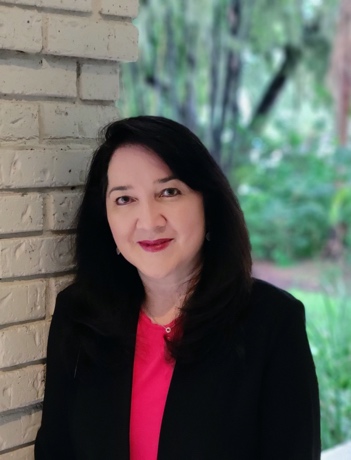 Dr. Claudia Rinaldi
Dr. Claudia Rinaldi
Claudia Rinaldi, Ph.D., is Chair of the Joan Weiler Arnow ’49 Professor of Education, an endowed position awarded for excellence in teaching and community impact. Her research areas are the implementation of the Multi-Tier System of Supports (MTSS)
framework in urban settings with English learners, teacher preparation in bilingual special education, and diversification of the teacher pipeline. Claudia has authored peer-reviewed publications and a book for educators called Practical Ways to Engage All Struggling Readers. She leads a graduate certificate program in Teaching Bilingual Students with Disabilities and leads a college mentoring program called Pathways to Teacher Diversity. She has served on the board of the Council for Exceptional Children (CEC). She also serves as a technical advisor for the National Center for Intensive Interventions and the Integrated MTSS Fidelity Rubric project. Claudia Rinaldi believes that it is critical to prepare teacher leaders who may serve as advocates and allies for all students. She believes that teachers must respond to the belief that all students can learn and succeed beyond barriers like culture, language, disability, poverty, and marginalization in our country and globally.-
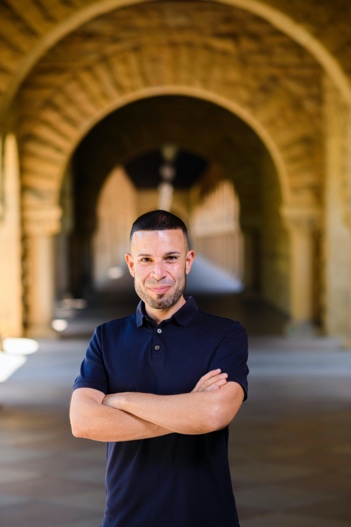 Dr. Jonathan Rosa
Dr. Jonathan Rosa
Jonathan Rosa is Associate Professor in the Graduate School of Education, Center for Comparative Studies in Race and Ethnicity, and, by courtesy, Departments of Anthropology, Linguistics, and Comparative Literature at Stanford University.
Dr. Rosa is also Director of Stanford’s Program in Chicanx-Latinx Studies and Co-Director of the Center for Global Ethnography, as well as President of the Association of Latina/o and Latinx Anthropologists of the American Anthropological Association. He is author of the award-winning book Looking like a Language, Sounding like a Race: Raciolinguistic Ideologies and the Learning of Latinidad (2019, Oxford University Press) and co-editor of the volume Language and Social Justice in Practice (2019, Routledge). His work has appeared in scholarly journals such as the Harvard Educational Review, American Ethnologist, Journal of Linguistic Anthropology, and Language in Society, as well as media outlets such as The New York Times, The Nation, NPR, and Univision.-
 Eliana Tardio
Eliana Tardio
Eliana Tardio is a Project Associate for the Special Education Policy and Practice Team at WestEd. Eliana Tardio contributes knowledge and support to the team to ensure the principles of equity and inclusion are embedded into best evidence-based practices
that help professionals achieve the goal of delivering a free appropriate public education to students with disabilities and their families.
Her areas of expertise include an extensive knowledge of the Individuals with Disabilities Education Act and its implementation in Part B and Part C for Early Intervention and Special Education Services. Eliana is nationally recognized for her expertise in topics of Stakeholder Engagement, Inclusion, Diversity and Equity. Her passion for communication has given Eliana great opportunities to amplify her voice through the use of social media. Eliana is one of the most influential Latina bilingual bloggers in the US in topics on inclusion and diversity. As the mother of two bilingual children with Down syndrome, she shares personal stories and advice to other families. Her commitment to create a more inclusive world has been highlighted by companies such as YouTube and Disney. In 2012 she was named as one of the Top Latina Mom bloggers in the US in an initiative of the White House under the administration of President Obama. With more than a million followers on social media, Eliana lives and breathes the power of advocacy through the celebration of diversity.-
 Timothy Tipton
Timothy Tipton
Timothy Tipton is a Speech-Language Pathologist in San Diego Unified School District, a San Diego State University graduate and lecturer on bilingual speech-language pathology. He’s a practicing bilingual SLP and coordinator of the District’s Bilingual Support Network.
He feels fortunate to have diverse opportunities, such as being a speaker of 3 languages, ELD instructor in Japan, bilingual general education teacher, Senior SLP and member of San Diego’s Culturally and Linguistically Diverse Transdisciplinary Team, which have positioned him to collaborate locally and nationally on evidence-based practices in speech-language pathology and special education services for students from a variety of linguistic, cultural and educational backgrounds. He is the co-author of San Diego Unified School District’s Comprehensive Evaluation Process for English Learners (CEP-EL), a district-wide, board-approved process developed to guide staff in pre-referral interventions, appropriate identification for special education services and IEP supports. He helped create an alternative IEP Process for Reclassifying English learners with disabilities and an Alternate Assessment for ELs with significant cognitive impairments. He has also helped lead school district efforts to reduce disproportionality of culturally and linguistically diverse groups in Special Education. Recently, he was a consultant, reviewer and contributor to the California’s Practitioners’ Guide for Educating English Learners with Disabilities. Most importantly to Timothy, he sees himself as an advocate for transdisciplinary, ecological, ethnographic, holistic and meaningful assessments and supports for all students.
-
-
-
-
-
-
-
-
-
-
-
-
-
-
-
-
-
-
-
-
-
-